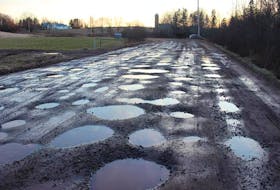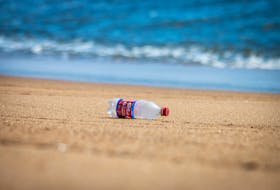It’s a chicken that no one wants to come home to roost — not the people carrying heavy household debt, not businesses, not governments.
But it’s running around the coop, closer to roosting than ever before.
The latest MNP debt index, released this week, found that 49 per cent of Canadians are now literally on the edge of the financial cliff, with less than $200 standing between them and insolvency. Many are already unable to pay their current bills.
And COVID-19 is close to being the critical tipping point.
The government’s actions, both to fund those suddenly out of work and to help businesses that are seeing revenues come to a sudden halt, are getting a kind of broad-based support that would have seemed impossible even a few months ago.
For years, financial experts have warned that people should keep up to three months’ pay in an emergency fund — and for just as long, workers have heard that message and rolled their eyes, realizing the near-impossibility of saving anything in an economy that literally runs on debt, from the lowliest credit card holder to almost ever national government.
And now, the long-warned-about emergency is here.
That’s why the federal government has acted so quickly — rolling out both programs to pay people whose jobs have disappeared as a result of the virus and the large-scale requirement that people stay in their own homes and away from workplaces.
The government’s actions, both to fund those suddenly out of work and to help businesses that are seeing revenues come to a sudden halt, are getting a kind of broad-based support that would have seemed impossible even a few months ago.
The website of the C.D. Howe Institute, for example, is literally awash with articles from the past few days and weeks arguing for the need for stimulus, and lots of it. Traditional concerns about government debt are, for now, back-burnered.
Like this, from the institute’s working group on Monetary and Fiscal Measures: “The working group agreed that, while there is a need for governments and central banks to monitor the effect of current crisis measures on debt and potential future inflation, these concerns are not a short-run issue and should not come at the expense of the immediate need for large-scale fiscal stimulus.”
There are voices raising concerns about growing debt, but they pale next to that “immediate need” — concerns about saving and protecting lives.
What’s perhaps the most interesting (though it clearly is a topic for another, post-emergency day) is what the financial world is going to look like after this.
What’s coming is going to be very different, just as our everyday lives are going to be significantly changed, even if COVID-19 doesn’t touch us personally.
Who knows? Maybe there is a financial system that can focus more on all the great things we can invent, build, make, improve and sell — and maybe focus less on a system that depends most of all on paying first and most consistently for the cost of credit.
But there’s still the problem of those chickens. More on that in the weeks to come.









